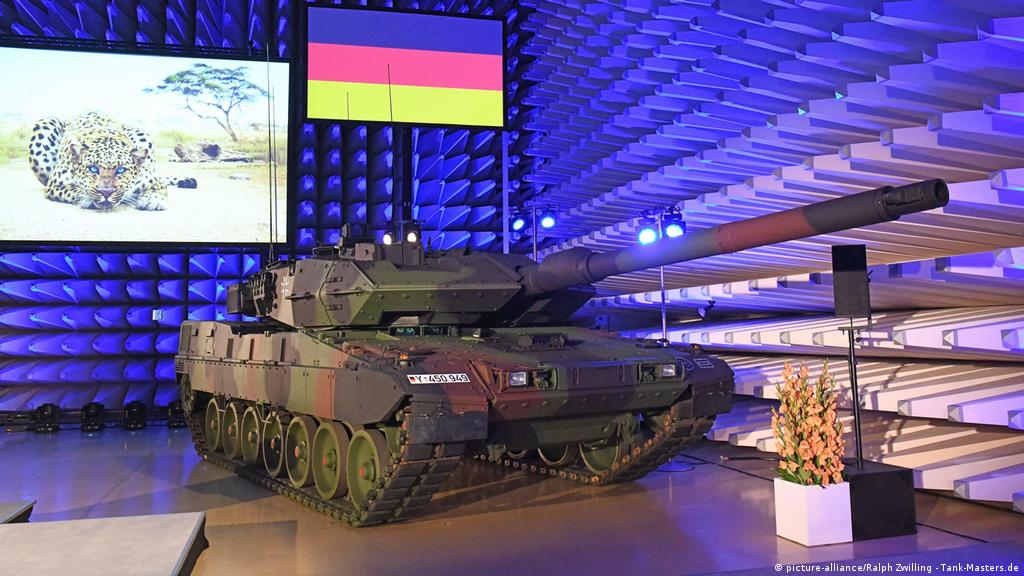By Yichuan Zhang
On February 27th 2022, German Chancellor Olaf Scholz stood before the Bundestag and pledged a 100 billion euro package that would be dedicated to the build up and rearming of the German military, alongside the promise that Germany would finally increase the nation’s defense budget to 2 percent of GDP, reaching the NATO standard. This decision, as a direct result of the political consequences that arose from the Russian invasion of Ukraine, marked a radical break with the policy of pacifism and disarmament that Germany had been pursuing since the end of the Second World War. It is the first of many important geopolitical shifts in Europe in the wake of the war in Ukraine.
How will Germany go about this radical change? Germany does not have a flexible nations budget. As such, its multi-year financial plan disallows radical budget shifts. To accommodate this new spending, Germany’s defense budget would remain flat at around 50 billion euros until 2026, with the 100 billion euro fund being used to pay the difference until the budget could be properly adjusted to NATO standards.
Where will the funds go? It will mostly be spent on purchasing new equipment for the Bunderswher. More specifically, a large chunk of the funds will be allocated to the Air Force, with 41 billion euros allocated to the purchase of CH-47F “Chinook” heavy transport helicopters and F-35 fighters. Additionally, 19 billion euros are set to be taken by the navy towards the construction of new U12 submarines, frigates and corvettes and 17 billion euros will be set aside for the army for the updating of armored combat vehicles. Lastly, 21 billion euros would be spent across all three military branches towards the investment in new communication and encryption technologies.
Contrary to popular belief, German defense spending had actually been rising over the last 6 years. From 2015-2021, the military budget for Germany had grown by 46%, with an average growth of 6-7% percent per year.
Some Key Points on Germany’s Re-Armament
- Germany’s modern day Army is known for its lack of funding, personnel, and equipment. The “Report on the Operational Readiness of the Bundeswehr’s Primary Weapons Systems” suggests that less than 30% of Military assets in Germany are operational. There is also a general lack of basic equipment for the Buneswehr, with the Army running short on materials such as tents and proper winter clothing in 2018.
- “And the Bundeswehr, the army which I have the honour to command, is standing there more or less empty-handed. The options we can offer the government in support of the alliance are extremely limited.”-Lieutenant General Alfons Mais
- The War in Ukraine and the uncertain future prospects of European security had been the main motivator for the German Government to change the current circumstances of the Bundeswehr. Finance Minister Christian Lindner wants to make the Bundeswehr the “most effective army in Europe”.
- The issue with the Bundeswehr is not necessarily a simple issue of funding. Germany still spends about 6 billion dollars more on its army compared to France. However, the French army is about twice as large as the Germany army, has more military hardware at its disposal, while also managing to fit the cost of a sizable navy as well as nuclear deterrence in its budget. This clearly demonstrates that this isn’t a simple issue of funding.
- The agency, “The Federal Office of Bundeswehr Equipment, Information Technology, and In-Service Support”, or the BAAINBw is to blame for this. It is an agency that is responsible for the procurement of all materials for the German Army. It suffers from extreme bureaucratization, and it lacks staff, resulting in very long waiting times for procurement, and inefficient allocation of its budget.
- The 100 billion dollar fund injection is to carry the budget until 2025 or 2026 when the GDP spending can be properly adjusted to 2%. The money is mostly going to be spent on buying things. Such as aircraft, helicopters, and general equipment for the Germany
- Germany’s success in its rearmament efforts lies whether or not it is able to successfully reform the BAAINBw into a more competent agency, otherwise, the issues plaguing the Bundeswehr will not be resolved in the future. The inefficient procurement process and the use of funds is not something that can be solved through the allocation of even more funds.
- “Overall, we have set ourselves up very comfortably in peacetime, and in this context, we have completely over-bureaucratized many things. We feel the effects of that, painfully, now,” said researcher Frank Sauer. This turning point also means “finally rethinking, becoming more flexible and agile — as demanded by the security challenges of the 21st century. This must start in the Defense Ministry.”
Works Cited
(www.dw.com), Deutsche Welle. “Germany’s Bundeswehr ‘Lacks Basic Equipment’ for NATO Mission: DW: 19.02.2018.” DW.COM, www.dw.com/en/germanys-bundeswehr-lacks-basic-equipment-for-nato-mission/a-42638910.
(www.dw.com), Deutsche Welle. “Germany’s Military Upgrade Hampered by Bureaucracy: DW: 07.06.2022.” DW.COM, www.dw.com/en/germanys-military-upgrade-hampered-by-bureaucracy/a-62046032.
(www.dw.com), Deutsche Welle. “How Will the German Military Spend €100 Billion?: DW: 03.06.2022.” DW.COM, www.dw.com/en/how-will-the-german-military-spend-100-billion/a-62020972.
-, George Allison, et al. “Less than a Third of German Military Assets Are Operational Says Report.” UK Defence Journal, 29 June 2018, ukdefencejournal.org.uk/less-third-german-military-assets-operational-says-report/.
“Beware of Potemkin: Germany’s Defense Rethink Risks Reinforcing Old Habits.” War on the Rocks, 15 Apr. 2022, warontherocks.com/2022/04/beware-of-potemkin-germanys-defense-rethink-risks-reinforcing-old-habits/.
Deutschland, RedaktionsNetzwerk. “Reaktion Auf Russischen Krieg: Lindner Will Bundeswehr Zur „Wirksamsten Armee Europas’ Machen.” RND.de, www.rnd.de/politik/reaktion-auf-russischen-krieg-lindner-will-bundeswehr-zur-wirksamsten-armee-europas-machen-OR2OM2P5ILDKD7IZMKNQ77B44A.html.
“Germany Calling: The Bundeswehr, Acquisition and a Broken Narrative.” Royal United Services Institute, 13 Feb. 2019, rusi.org/explore-our-research/publications/commentary/germany-calling-bundeswehr-acquisition-and-broken-narrative/.
Person. “German Army Chief ‘Fed up’ with Neglect of Country’s Military.” Reuters, Thomson Reuters, 24 Feb. 2022, www.reuters.com/world/europe/german-army-chief-fed-up-with-neglect-countrys-military-2022-02-24/
Defense Expenditure of NATO Countries (2014-2021)
“Germany Military Spending/Defense Budget 1960-2022.” MacroTrends,
www.macrotrends.net/countries/DEU/germany/military-spending-defense-budget


